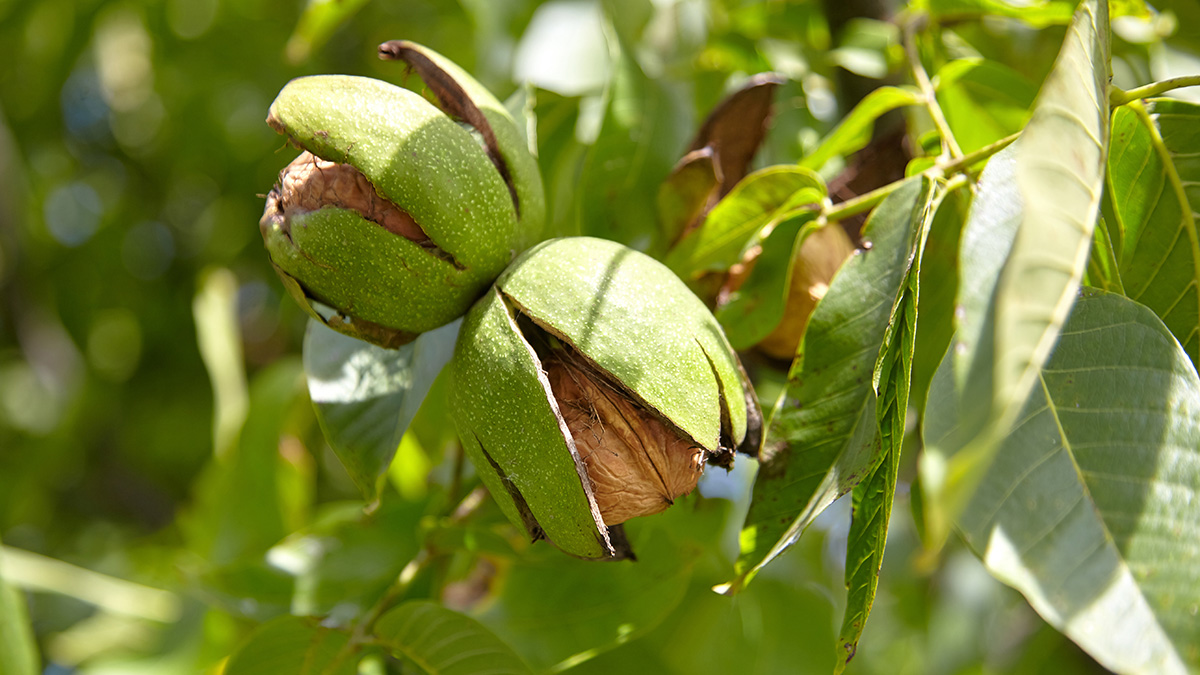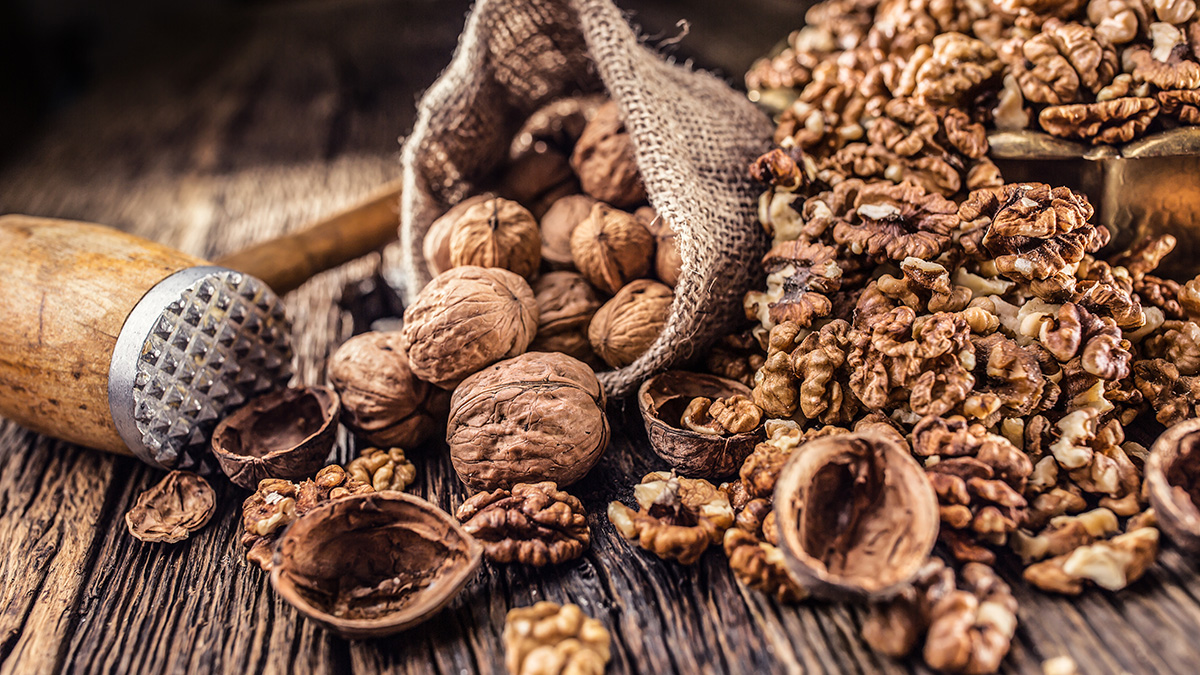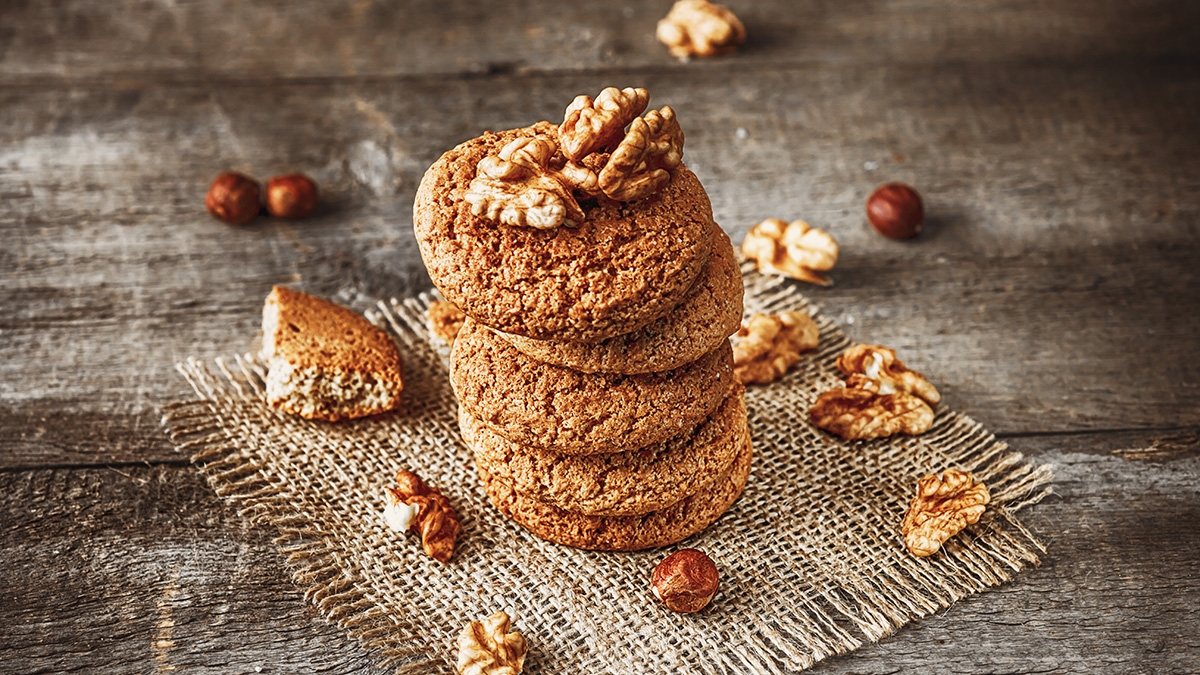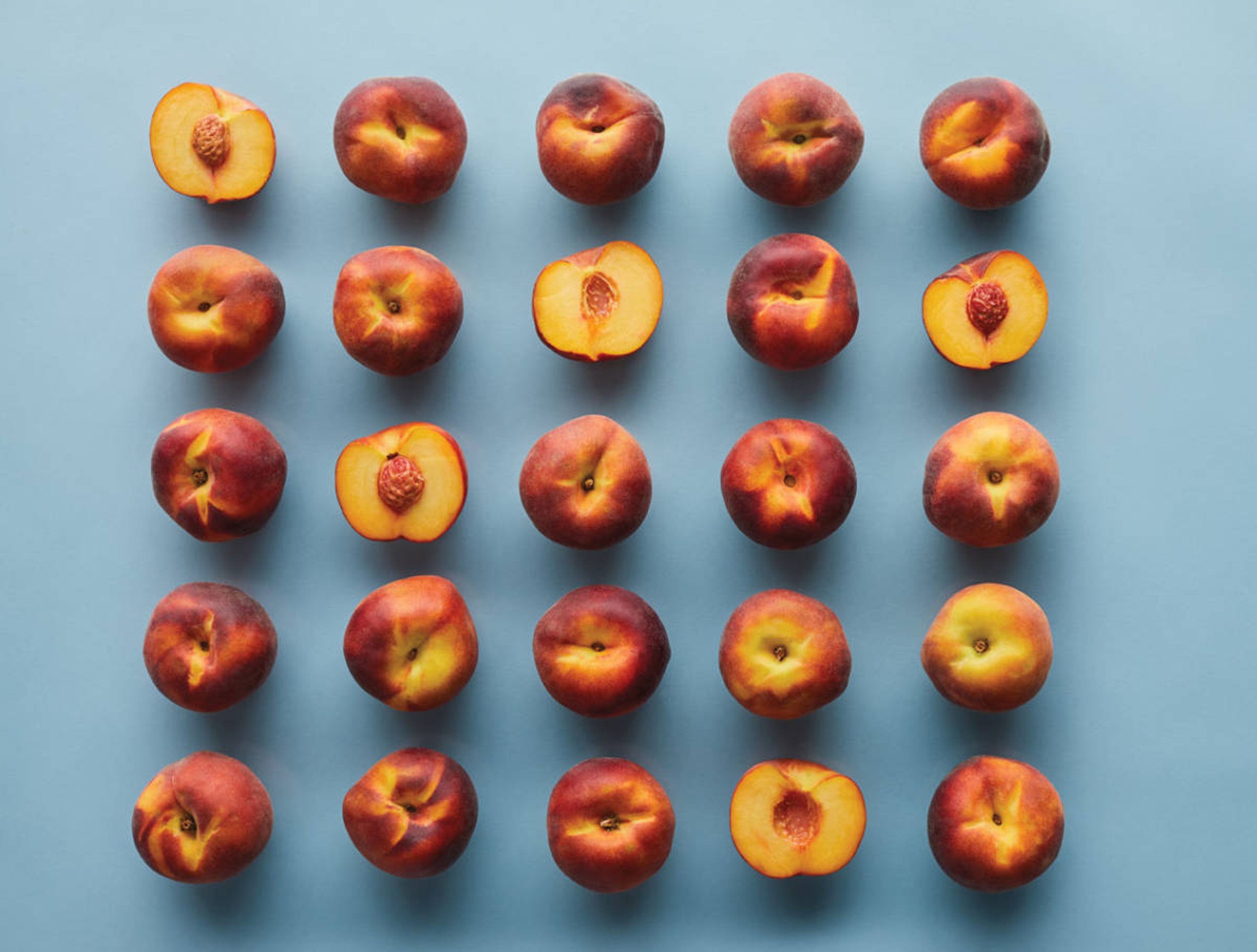Believe It or Nut: 8 Fantastic Facts About Walnuts
This super-nutritious food is actually used for sport in certain parts of the world. Yes, really.
Feb 15, 2022
Walnuts are one of nature's most tender, tasty, and nutritious nuts...or seeds, or fruits. It all depends on the botanist you ask and what criteria they use. But unless you're into academic agriculture, nitpicking over walnut classification can't be too interesting — and it's certainly not as intriguing as the ancient cultural traditions that involve these tasty snacks and essential ingredients in so many baked goods.
Read on to learn eight fascinating facts about walnuts, including where they come from, how unbelievably healthy they are, and how they're used in competition (seriously).
Walnuts are man's earliest tree food

Humans are believed to have first consumed walnuts during the early Neolithic period (approximately 7,000 BC), making them one of the oldest known foods to have been gathered from trees and eaten. The Greeks were the first people known to have actively cultivated walnuts, followed shortly thereafter by the Romans, who considered the nut a perfect complement to their fruit desserts (we definitely agree!). Modern archaeological finds suggest walnut cultivation may also have taken place in Mesopotamia (current day Middle East) during this time period, specifically in the legendary Hanging Gardens of Babylon, one of the Seven Wonders of the Ancient World.
Walnut shells produce art supplies
Artists including Leonardo da Vinci and Rembrandt have used the walnut scraps we throw in the trash for centuries. Mixing walnut husk shavings with water and minerals produces a long-lasting ink. As far back as 800 BC, Roman garment-makers dyed fabric with similar mixtures, and in medieval Europe a diluted version of this solution was utilized as a hair dye. The nomadic Romani people of the 14th century (history's original Gypsies) were also known to use pigments made from walnut shells to paint their faces for traveling theater performances.
Walnut smashing is a popular sport
In the Kashmir region of the Himalayas, smashing walnuts with different parts of the body has somehow become a highly contested sport — and one man, Muhammad Rashid of Pakistan, has emerged as the undisputed king of walnut crushing. A martial arts master, Rashid holds three separate world records for the most walnuts smashed open in one minute:
- 284 using his hand
- 315 with his elbow
- 254 using only his forehead
The latter was set in 2020 during a head-to-head battle with his archrival, S. Navin Kumar of India (who used his brow to smash a mere 239).
Walnuts are natural remedies
The ancient Chinese used various elements of walnut trees as medicines. They steamed leaves in water to produce a wash that stimulated hair growth, and consumed crushed walnuts to remedy stomach ailments and urinary problems. People in the Middle East and Africa have historically smoked walnut shells to open congested nasal passages, and also burned it to act as an insect repellant.
The walnut's medicinal uses extend to animals as well. The indigenous peoples of America created a walnut oil they believed could rid their animals of parasites.
Walnuts are true brain food

If you haven't noticed, walnut shells can resemble human skulls, and the nut within looks strikingly like a brain. Given the similarities, the ancient Greeks revered walnuts as a source of intelligence, naming them karyon, which translates to "head." Ironically, modern studies found that older rodents who were fed a diet of up to 6% walnuts experienced a measurable reverse in age-related brain and motor function decline. Research also shows that coffee produces positive changes in the brain, so for those seeking smarts in a drinkable manner, a maple walnut coffee (or three) certainly couldn't hurt.
Walnuts are jewels in China
From the time they arrived in China roughly 2,500 years ago, especially large or uniquely shaped walnuts, as well as lookalike pairs, have been treated like jewels. Originally reserved for emperors, these types of prize walnuts have become investment pieces in modern-day China, where certain rare varieties and carefully carved pairs can sell for tens of thousands of dollars.
Chinese walnut artisanship also includes a tradition of hollowing out walnut shells and creating miniature scenes, or dollhouses, within them. An ancient tradition of rotating two walnuts within one hand for relaxation and improved blood circulation continues to this day in China.
Walnuts are ridiculously healthy

The proven health benefits of walnuts are nearly too many to list. Eating walnuts as part of a balanced diet can help improve metabolism and decrease blood pressure while improving circulation, lowering cholesterol, strengthening the reproductive system, improving muscle function, aiding in digestion, and increasing bone strength. Remarkable levels of manganese, copper, omega-3 acids, molybdenum, B-complex vitamins, catechin, and melatonin are all to thank for these benefits. More impressively, walnuts are even thought to help slow the development of cancer, due to their high content of ellagic and gallic acids, vitamin E, and phenol antioxidant.
Walnuts can help prevent weight gain
As if the scores of long-term health benefits weren't enough, walnuts can actively — yes, right this minute — reduce hunger between meals and help maintain a healthy weight. Recent studies show that eating a handful of walnuts before a meal can noticeably increase the feeling of fullness and prevent overeating, thanks to the various vitamins and plant sterols they contain. Researchers have also found that walnuts slow weight gain as one ages due to their protein, fiber, and healthy fat content.
So, the next time a craving hits, go ahead and crack open a few walnuts. They'll leave you feeling satisfied and energized (as long as you don't use your head to open them).







